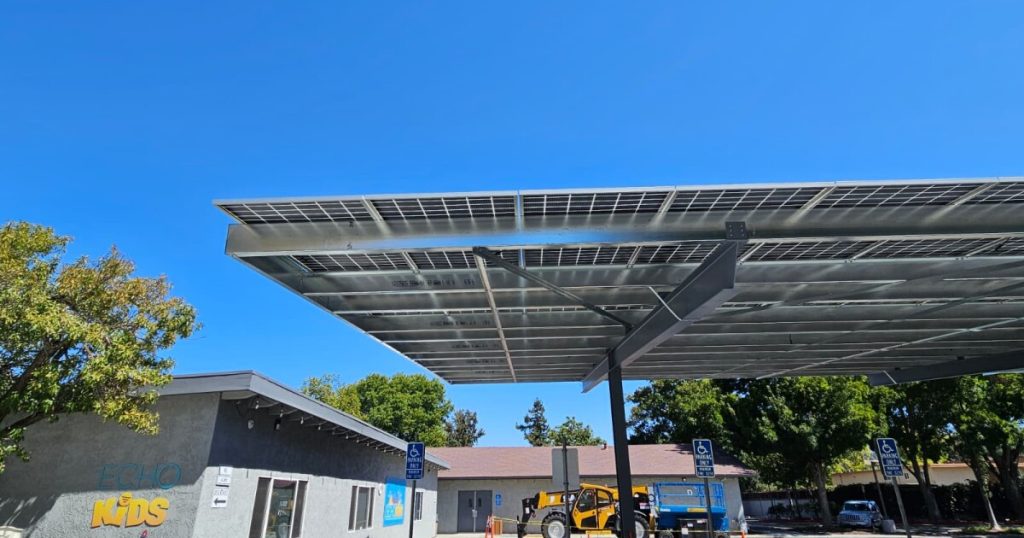- Key Insight: Disruption in the solar lending market as the Trump administration rolls back tax credits may provide an opportunity for a small Florida bank.
- What’s at Stake: Demand for energy is on the rise, due to the development of AI and data centers, but the federal government has made efforts to curb investments in the renewable energy sector.
- Supporting Data: In the last year, solar energy usage in the U.S. has increased 30%, according to the U.S. Energy Information Administration.
As the Trump administration moves to roll back climate-friendly policies and the development of renewable energy, a small bank in Florida is leaning into its green-focused lending mission.
In the latest move to expand its fastest-growing business,
Earlier this year, Congress passed sweeping tax legislation that will phase out certain tax credits for residential solar lending, which had been granted by the Inflation Reduction Act of 2022. The cuts dealt a blow to many banks and fintechs in solar lending.
But commercial solar tax credits were given a longer phaseout timeline, and entities like nonprofits and houses of worship have even more flexibility to take advantage of certain benefits.
Chris Cucci, chief strategy officer at Climate First, told American Banker that the $1.1 billion-asset bank sees the tax changes as an opportunity to accelerate its solar lending work over the next few years, before the rules again get revised. Plus, he added, there’s a need for the financing, as the rapid evolution of technology, including the rise of artificial intelligence, calls for more energy.
“Even beyond that, the demand for energy is continuing to escalate in the U.S. for a variety of reasons, but absolutely, because of the demand on data centers, and as AI continues to penetrate markets here,” Cucci said.
In the last year, solar energy usage in the U.S. has increased 30%, according to the U.S. Energy Information Administration. In Texas, solar power recently set a new record, generating 40% of the state’s electricity for seven straight hours earlier this month, according to the Institute for Energy Economics and Financial Analaysis.
But there’s been a pullback in the industry as the federal government has cut off support. Earlier this summer, home solar fintechs Sunnova Energy International and Solar Mosaic both went bankrupt.
In the last few months, banks like Bank of America, Horizon Bancorp, Regions Financial and Fifth Third Bancorp said they were going to scale back or run off their exposure to the segment.
Fifth Third CFO Bryan Preston has said that the Cincinnati bank’s solar originations for 2026 may be down 70% to 80% from 2025 levels. The bank plans to launch a new home equity product in 2026 to offset the hit to its solar business, Preston said on the company’s July earnings call.
Ohm Analytics, an energy data firm, modeled in August that the tax credit cuts will mean a 26% drop in residential storage installation capacity, compared with the potential 8% growth with the full Inflation Reduction Act measures in place.
But Climate First’s Cucci said the disruption will create an opening.
“We’ve grown a lot over the last few years, still being a relatively small player in terms of market share in the space,” Cucci said. “Recent bankruptcies and pauses on lending — that creates an opportunity for our fraction of a percent of market share to increase to a larger fraction of a percent, or even over a percent.”
More than one-third of the bank’s $1 billion loan portfolio is made up of solar financing — of that, about 75% is residential and 25% is commercial.
In July, the bank announced it had raised $46 million — for a total of $125 million invested — to further expand its national solar and renewable energy efforts.
Climate First’s recent $20 million line of credit to Sunwealth was a “long time coming,” Cucci said. While the bank started conversing with the investment firm several years ago, Climate First was still too small for such a transaction, he said, and was limited to lending in Florida until last year.
Now, the bank has done some half a dozen similar loans, but Sunwealth was “one of the first phone calls” Cucci made when he started scaling the renewable financing group outside the Sunshine State. The deal will support projects in California, Connecticut, Massachusetts, New Jersey, New Mexico, New York and Texas, along with Washington D.C.
Jon Abe, who founded Sunwealth a decade ago and serves as its CEO, said he’s not concerned about the investability of the sector.
Sunwealth plans to deploy the credit over the next year, Abe said, with the goal of renewing the line with Climate First. The firm’s goal is to invest $1 billion in community-based solar and solar-related storage projects in the next four years.
Abe said that “solar is here to stay,” especially as nonprofits, government entities, small businesses and other community organizations are looking to stabilize their energy prices.
“The go-forward outlook is that there is steady and increasing demand for community-based solar and solar-plus storage projects,” Abe said.
He added that while federal policy can be stop-and-go, many states have been consistently increasing solar programs and energy investments.

